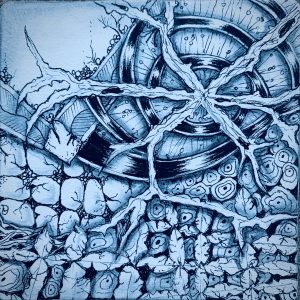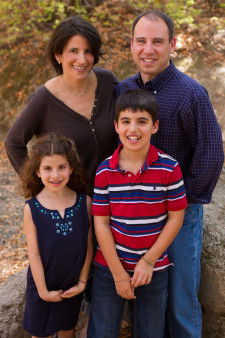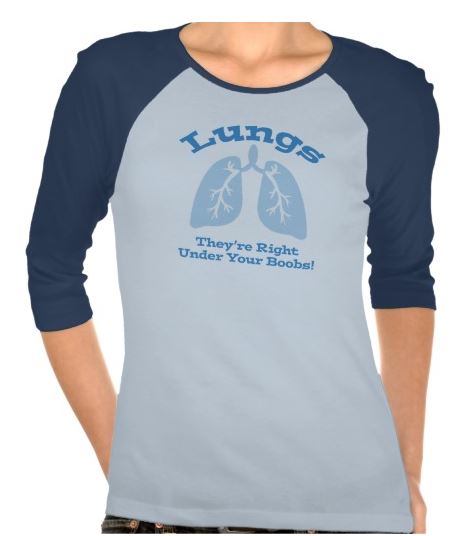Update #24: She Gets Around (aka Picking an Oncologist)

I couldn’t think of what kind of photo would match this post, so here’s a random drawing I made a couple days ago.
I had scans last week. Everything still looks good, with the caveat that there is a small amount of fluid in my lungs that wasn’t there last time. This could indicate cancer activity, but my oncologist feels it’s most likely a side effect of my medication – the same side fun effect that causes my legs to inflate like balloons (so adorable). So, I’m trying to trust her and not stress out about it, especially because she so thoughtfully gave me something different to stress out about. She’s leaving her position treating patients to focus on her research. I need to find another oncologist. Shit.
I think of myself as quite a loyal, consistent person. But, here I am, looking for my 6th oncologist in 7.5 years. You may be wondering … 6 oncologists? WTF Lisa, you sure get around. Why are you such an oncologist slut? Here’s how that happened in a nutshell:
- #1 — Randomly assigned to me while I was in the ICU after my initial biopsy and diagnosis. Very good, but not a specialist in LC. Stayed for 1 year.
- #2 — Switched to an LC specialist at Stanford. Very good, but somewhat inaccessible. Stayed for 6 months.
- #3 — Switched to a community oncologist with a special interest in LC. Stayed for 4 years until he took an extended leave of absence.
- #4 & #5 — Switched to his partner, whom I like very much, but is more focused on breast cancer than lung cancer. So, I also added an LC specialist from UCSF. For 2 years I’ve had these two oncologists, going to UCSF for my scans and my community oncologist for labs and everything in between. Polyamory FTW.
- #6 — ??? (*Note: 1-6 do not include the second opinions I have sought a few times along the way.)
That’s a lot of doctor switches for someone who doesn’t feel comfortable with doctor searches. I was raised to give great deference to MDs. “Interviewing” them and negotiating a care protocol feels awkward and almost disrespectful to me. But my life is on the line here, so I have to force myself to pull up my big girl panties and do my best.
I wish there was a fool-proof recipe for selecting an oncologist. Google tells me to ask for referrals from my existing docs, but I don’t find that sufficient. My existing docs might not know the whole universe of options, or they may feel bound to refer within their own network. Google also tells me to ask questions like “how long have you practiced?” and “how many patients do you have with this diagnosis?” These questions are fine, but not as relevant in a situation where I have a rare diagnosis and treatments are very new.
FWIW, here are the things I look for in my oncologist:
- Expertise in lung cancer, especially LC driven by a biomarker and eligible for targeted therapies like my ROS1+ cancer. If lacking this expertise, then willingness and experience collaborating with an expert is crucial.
- Respect for me as a partner, not just a compliant patient. I know ROS1+ cancer is rare. I don’t expect even LC experts to be able to keep up to date on all the research for every possible biomarker out there. That’s why I am so involved in running The ROS1ders, where patients share updates from experts and trials around the world. I’m not an MD, but I know a lot about my disease and I need an oncologist who will respect, rather than resent or dismiss, that.
- An excellent radiology department. I choose my oncologist with care, because that’s who I actually *see,* but it turns out that most major treatment decisions turn on the scan reports by the radiologists.
- Part of a hospital or group that has a tumor board or multidisciplinary team, so that if/when I have to make a treatment decision, I can get input from a variety of experts.
- Patience with my interest in incorporating complementary practices. I take supplements, do acupuncture, play with my diet and exercise, etc. I want to be able to discuss this with my oncologist, not hide it. I won’t do anything my oncologist believes is dangerous, and I don’t plan to invite them to attend a sound healing meditation with me (although just typing that out totally makes me want to, if only to see the look on their face), but I don’t appreciate a doctor who defaults to “don’t do any of that because I don’t understand it, and can you please stop being a pain in my ass.”
Bottom line: Here in the Bay Area, I’m pretty spoiled for choice, with two academic research institutions nearby and several other medical groups to choose from as well. I have been lucky so far, so fingers crossed oncologist #6 will be another good one. Many people don’t have a bevvy of oncologists to choose from. However, if you’re aren’t in an area where you have much choice, I would still advise having a conversation with your oncologist about how you’d like to work with them, and incorporate other experts as needed. Establishing your care team and protocol is no time to be bashful.


